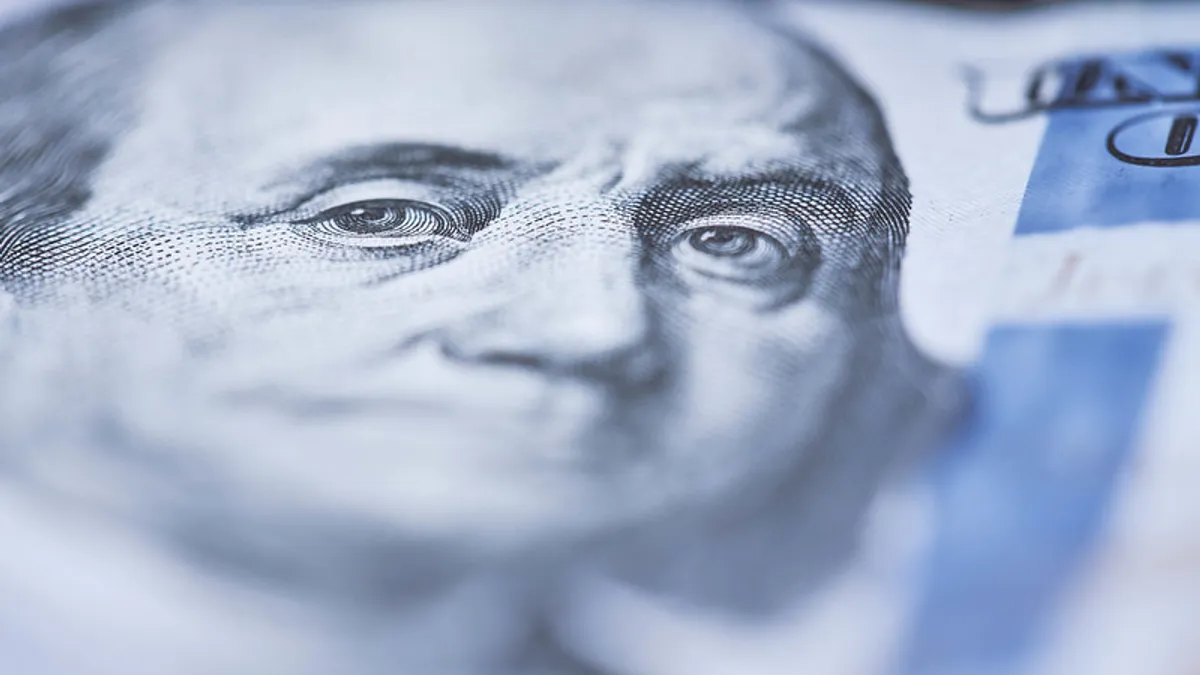First National Bank Texas this month launched an overdraft alternative it calls One-Day Rewind, which automatically refunds a customer’s overdraft fees from the previous day if the balance on the account is not more than $12 in the red by the end of the next banking day.
On its face, a product like this at a $3.7 billion-asset, 340-branch bank may not generate headlines. But First National Bank Texas is not a typical lender. The bank collected $100.3 million in overdraft fees in 2020 — nearly triple its $35.7 million profit that year, according to S&P Global. By comparison, overdraft fees account for roughly 8% of profit at Bank of America and 7% at JPMorgan Chase, American Banker reported.
By another measure, First National took in $137 million in service charges on consumer deposits in 2020 — making up 35.4% of its operating revenue. That makes it the most reliant on those charges of any bank in the country, according to S&P Global data.
"Over the past decade, as a result of ongoing enhancements, the percentage of total revenue generated from overdraft related fee income has significantly declined and the Bank anticipates a significant further decrease as a result of implementing One-Day Rewind," First National wrote in a press release Tuesday, adding that 26% of customers who have overdrawn their accounts have taken advantage of the program in the three weeks since its launch.
Aaron Klein, a fellow at the Brookings Institution, has called banks like First National "check cashers with a charter."
"These entities are not really banks in the traditional sense of taking deposits, making loans and helping customers and the economy," he wrote in a March 2021 op-ed. "They are a combination of payday lenders and check cashers, whose business model depends on a single product with a sky-high annual interest rate that is only paid by people who run out of money."
The concept behind One-Day Rewind is hardly unique. Wells Fargo and U.S. Bank this month each said they would introduce a 24-hour grace period for customers to deposit funds and avoid an overdraft charge.
Citizens Bank in October introduced technology that alerts users to overdraft withdrawals, and PNC in April 2021 announced its "low cash mode" offering, geared toward a similar purpose.
JPMorgan Chase last month said it would give customers an additional business day to restore overdrawn accounts to $50 in the red or less before a fee is charged.
The $12 threshold First National has instituted before triggering an overdraft fee falls short of JPMorgan’s $50 — or the $100 Santander allows.
Grace periods are just one method several big-name banks have used to wean themselves off overdraft fees, which have garnered increasing attention over the past year from lawmakers and regulators alike. Some banks, like Capital One and Ally, have jettisoned the fees altogether, while Bank of America, for example, pledged to cut its overdraft charge from $35 to $10.
U.S. Bank, for one, estimated the shift away from overdraft and other fees will cost the bank between $160 million and $170 million in annual revenue. Nevertheless, "we believe this is not only the right thing to do for customers, but it is a smart business decision," CFO Terry Dolan said.
It’s one thing to say that when a bank’s annual revenue is $22.8 billion — as is U.S. Bank’s. But when revenue is less than $400 million, and service charges account for more than one-third of that, it's natural to question how a bank will fare when leaning away from a long-held model.
"I applaud [First National] for making a baby step in the right direction but remain skeptical this bank is capable of being a profitable institution without relying on overdraft fees to survive," Klein told American Banker on Tuesday, adding he thinks "this small and insufficient change is meant to provide cover against the more structural change that is needed."
In a statement, a spokesperson for First National called One-Day Rewind "the next step in the evolution of our consumer banking Overdraft Program," adding the bank "remains committed to innovating to meet the needs and improve the financial health of our customers."














